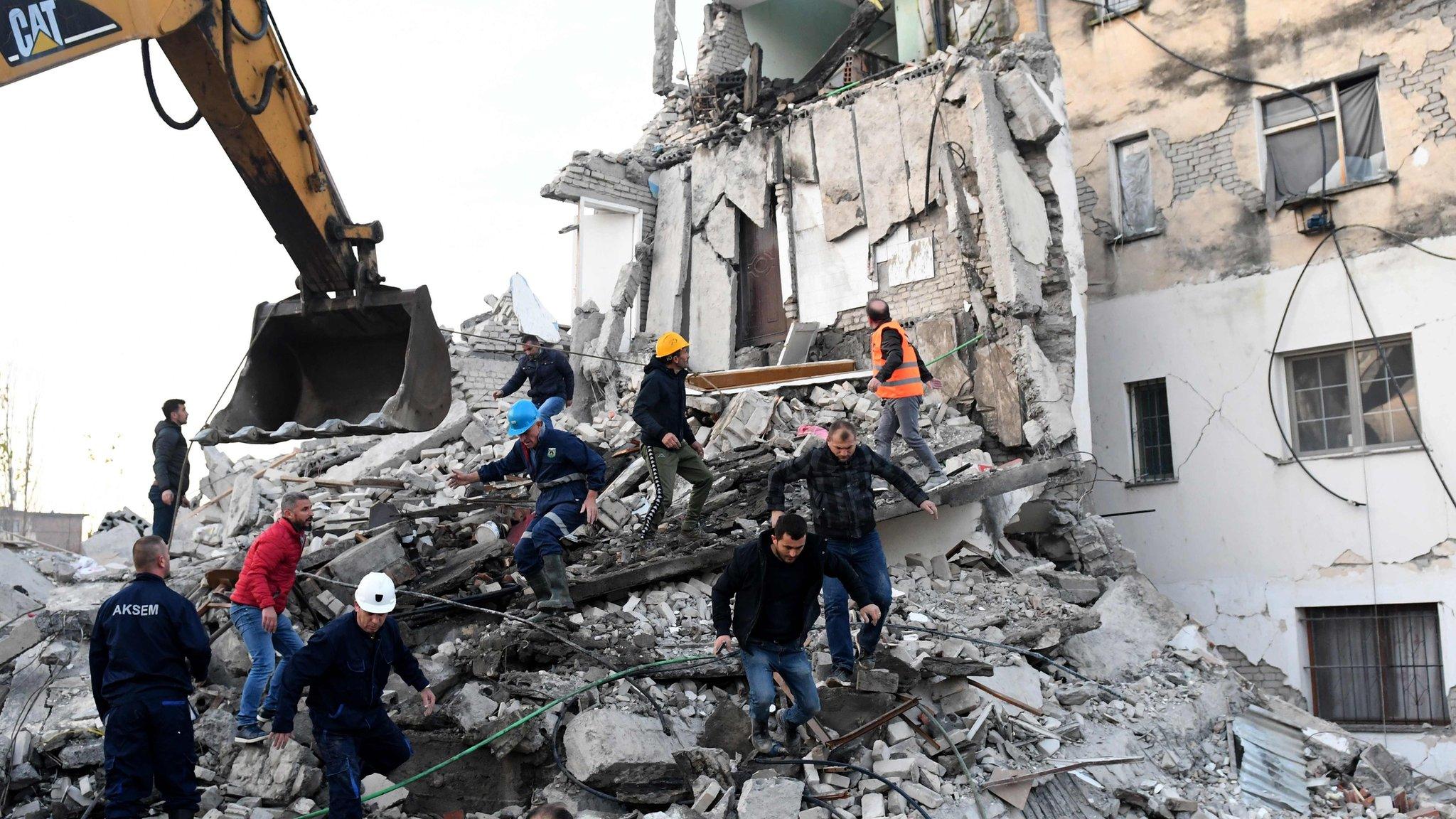Albania earthquake: Hopes of finding survivors fade
- Published
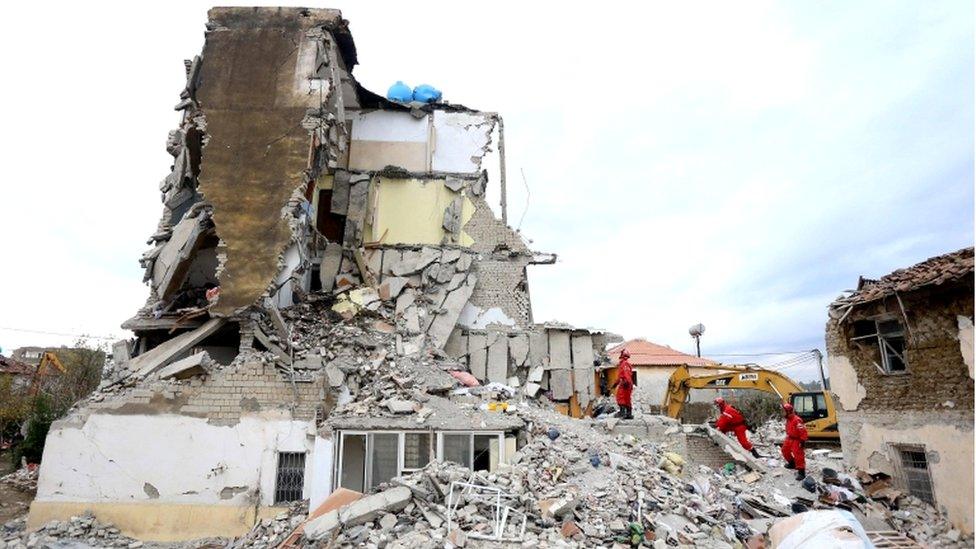
A rescue team from Italy searches for people caught beneath a collapsed building in Thumane
Relatives of people whose homes were destroyed in Albania's most powerful earthquake in decades are awaiting news, as rescuers find more bodies in the rubble and the death toll rises to 40.
"Ten more victims were found during the night," Albania's defence ministry said in a statement on Thursday morning.
Children were among those killed when a magnitude-6.4 quake hit on Tuesday.
Rescue teams from Serbia, Italy, France, Greece, Switzerland, Turkey and Croatia are helping with the search.
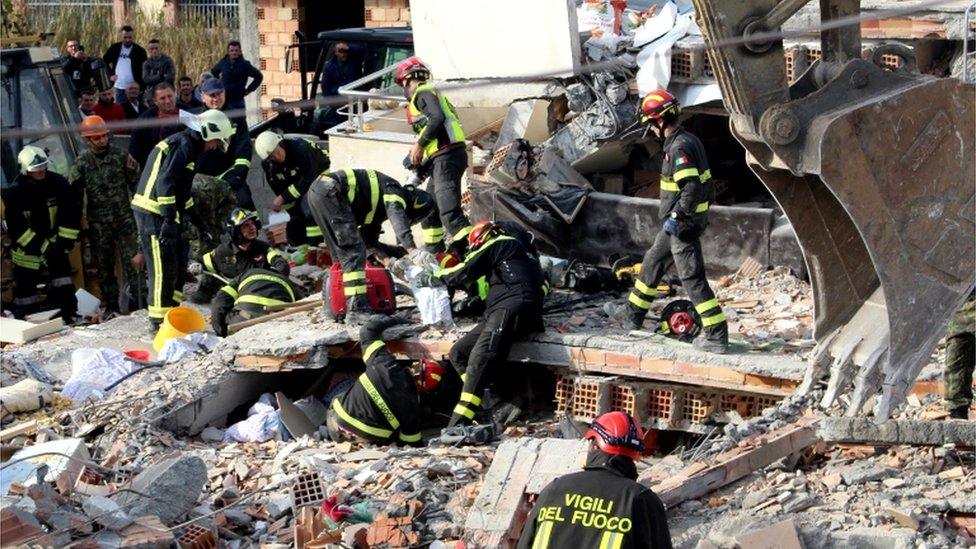
The Italian fire service search the rubble of a residential building in the Albanian city of Durres
"Our teams have been working uninterruptedly since last night. It is a very, very difficult situation," Italian fire service spokesman Luca Cari told Ansa news agency.
Albania's Prime Minister Edi Rama has declared a state of emergency - enabling more funds and security - in the coastal city of Durres and the inland town of Thumane, the two areas worst affected.
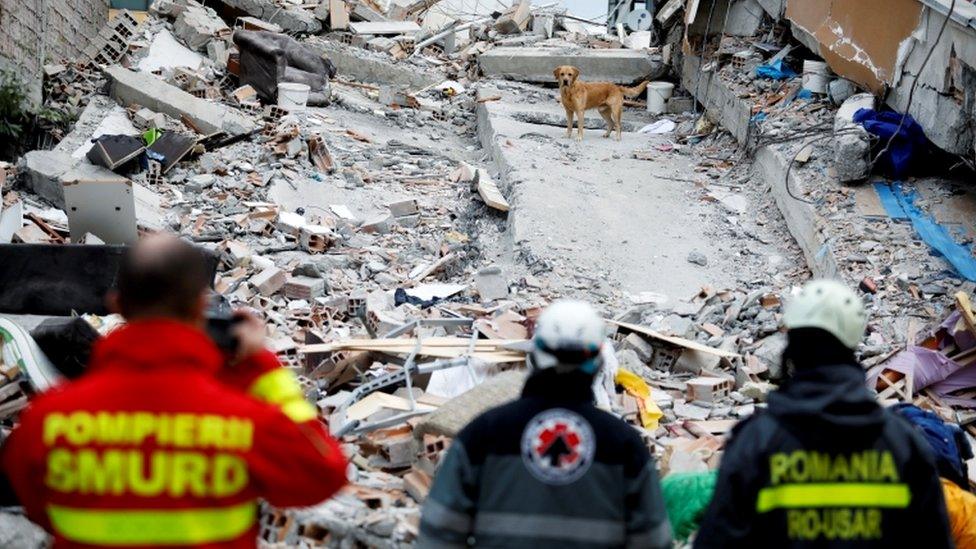
A rescue dog with a Romanian team searches for survivors in Durres, where residents sought refuge at a football stadium
Sniffer dogs are being used to help find people trapped beneath the rubble and military officers have joined the rescue efforts.
So far, 45 people have been recovered alive from different locations and are receiving hospital treatment. But one person who was pulled alive from the rubble in Thumane later died from his injuries.
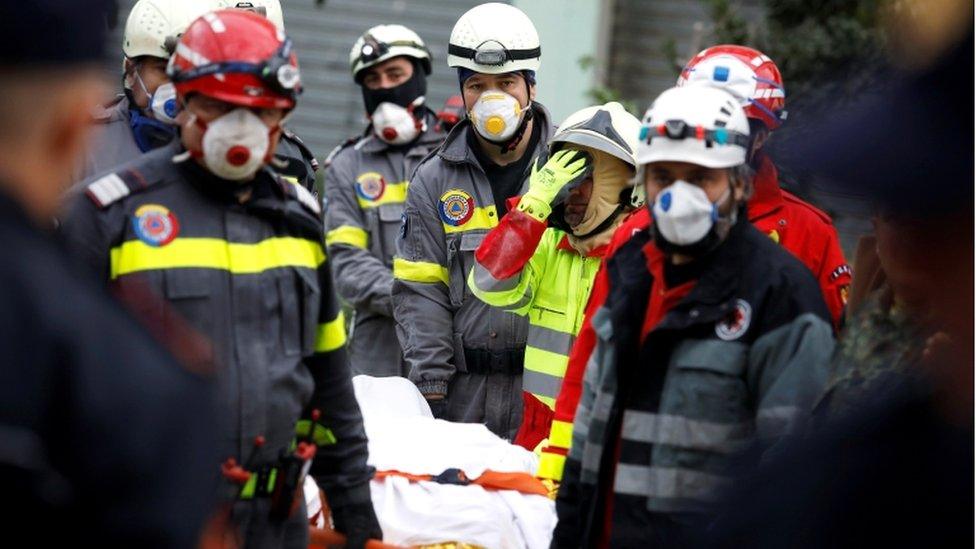
While dozens of bodies have already been recovered, there are fears more lives have been lost
But whole families have perished and hundreds of people have been injured as a result of the earthquake and a series of powerful aftershocks.
Flags are flying at half-mast on public buildings around the country as Albania observes a national day of mourning.
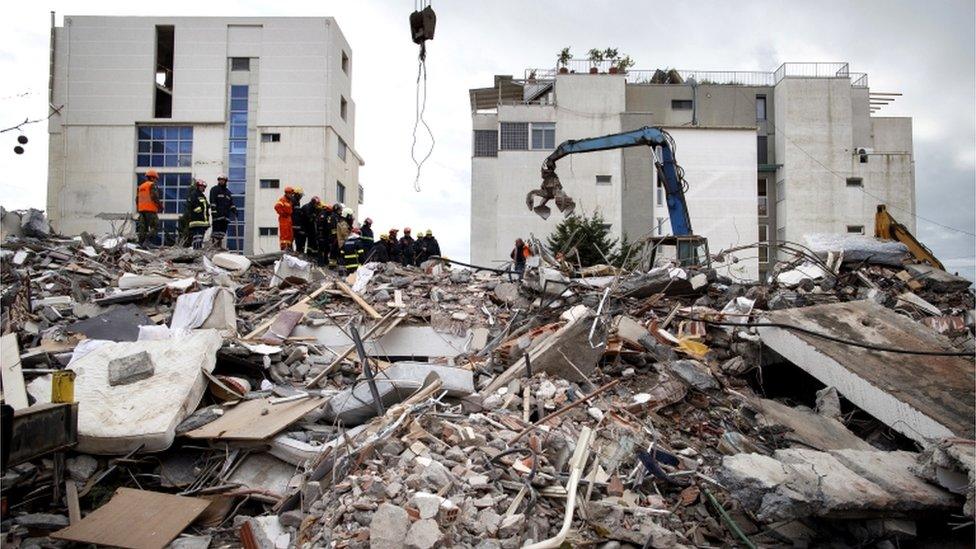
Tall residential buildings in Durres were completely destroyed in the magnitude-6.4 quake
Gregor Rama, the prime minister's son, posted on social media that his girlfriend and members of her family had been killed.
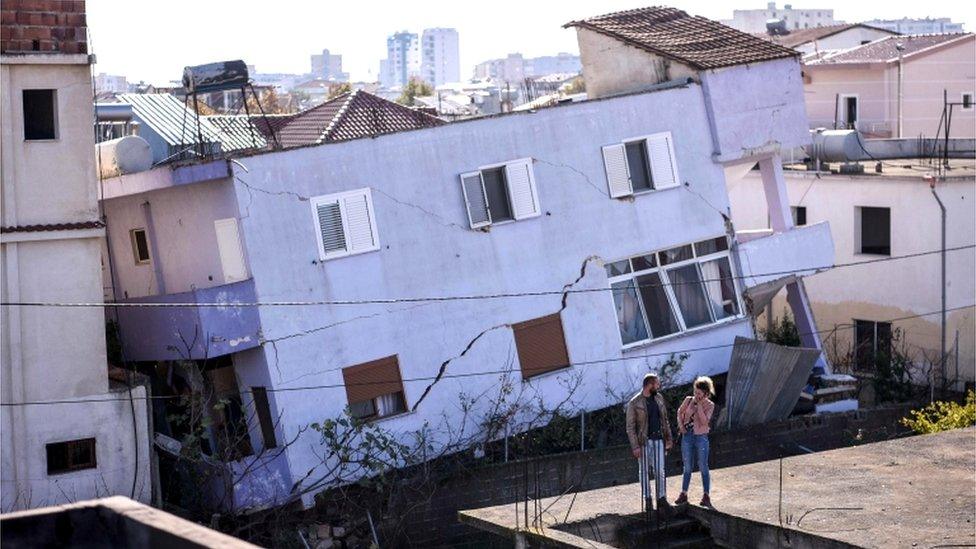
A collapsed home in Durres, one of the cities most heavily struck in the disaster
It is not clear how many people remain unaccounted for.
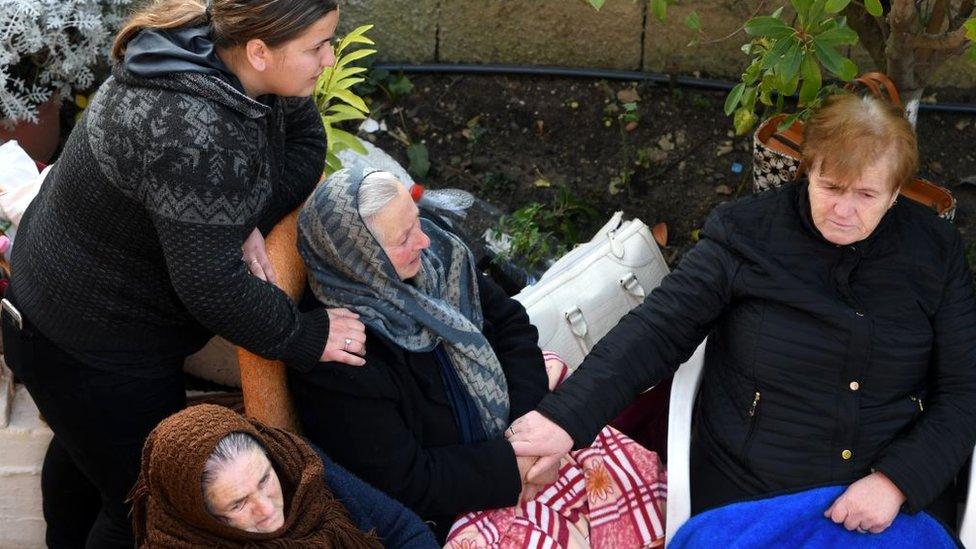
Relatives of residents living in a collapsed building in Thumane wait for news of their loved ones
The quake struck 34km (21 miles) north-west of the Albanian capital, Tirana, during the early hours of the morning as most people were asleep.
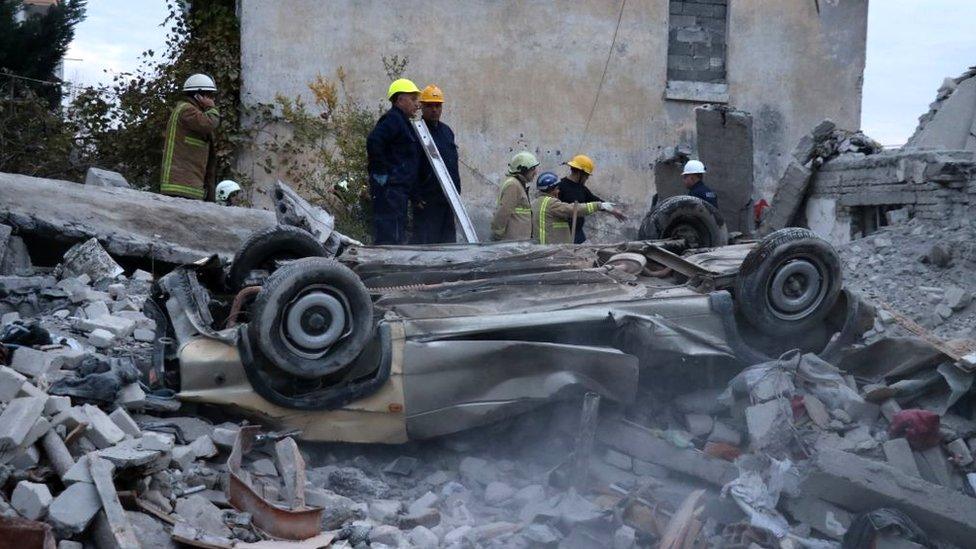
The inland town of Thumane was one of the worst affected areas
Most of the deaths occurred in Durres and Thumane, close to the epicentre.
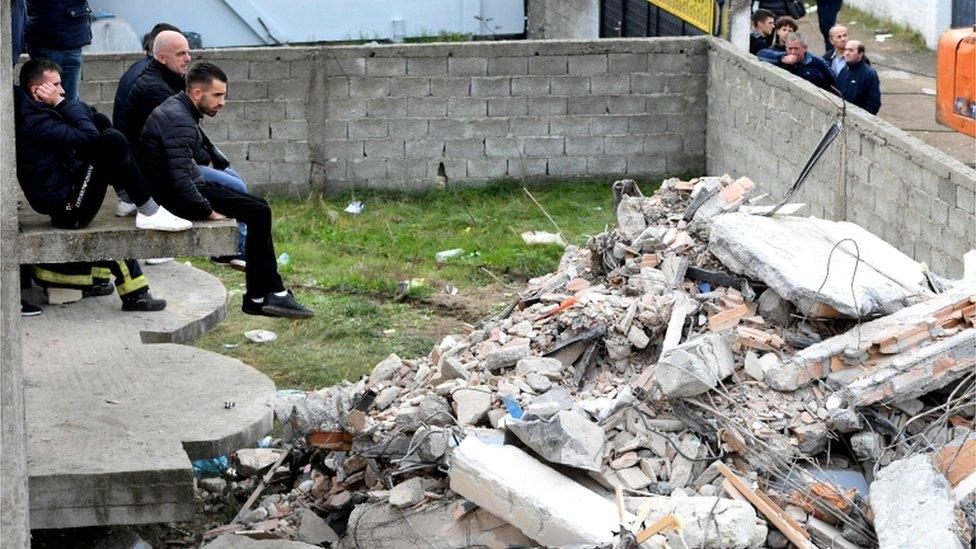
Prime Minister Rama has promised that rescuers will "continue to search patiently and thoroughly to the end", and said that all those affected would be sheltered in hotels until the government had rebuilt their homes.
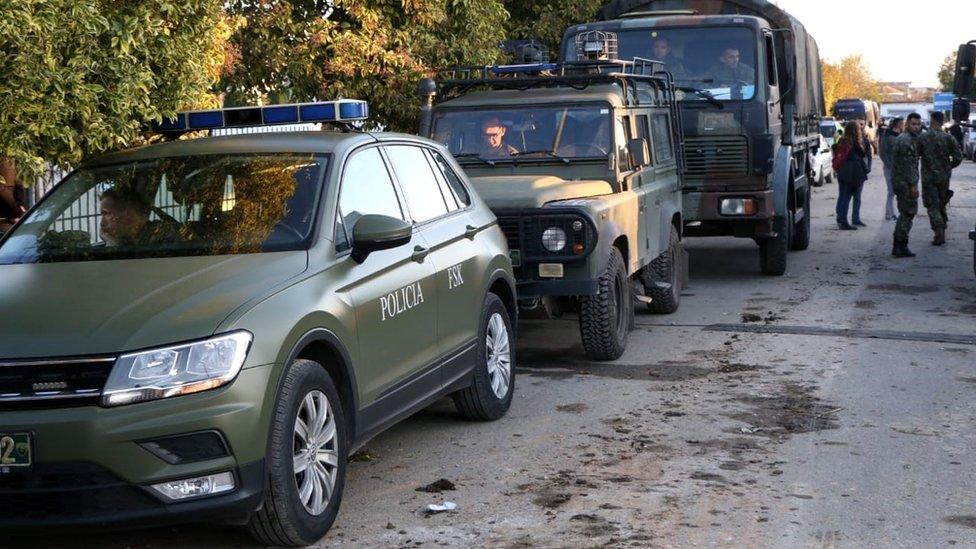
Kosovo Security Forces (KSF) are providing emergency assistance in Durres
Of the several countries providing support, the largest deployment of personnel has come from the Kosovo Security Forces (KSF). The troops are specially trained to help with natural disasters.
Kosovo has also sent police to Albania to help maintain law and order.

As well as those buried in their homes when the quake struck, one man died in a car accident when part of a road was torn open and another man did not survive after leaping from his balcony in panic.
Albania quake: Rescuers search for survivors
Albania sits on an Adriatic tectonic plate.
In April 1979, a magnitude-6.9 quake hit Albania and northern neighbour Montenegro, leaving 136 people dead and more than 1,000 injured.
All images are subject to copyright.
- Published27 November 2019
